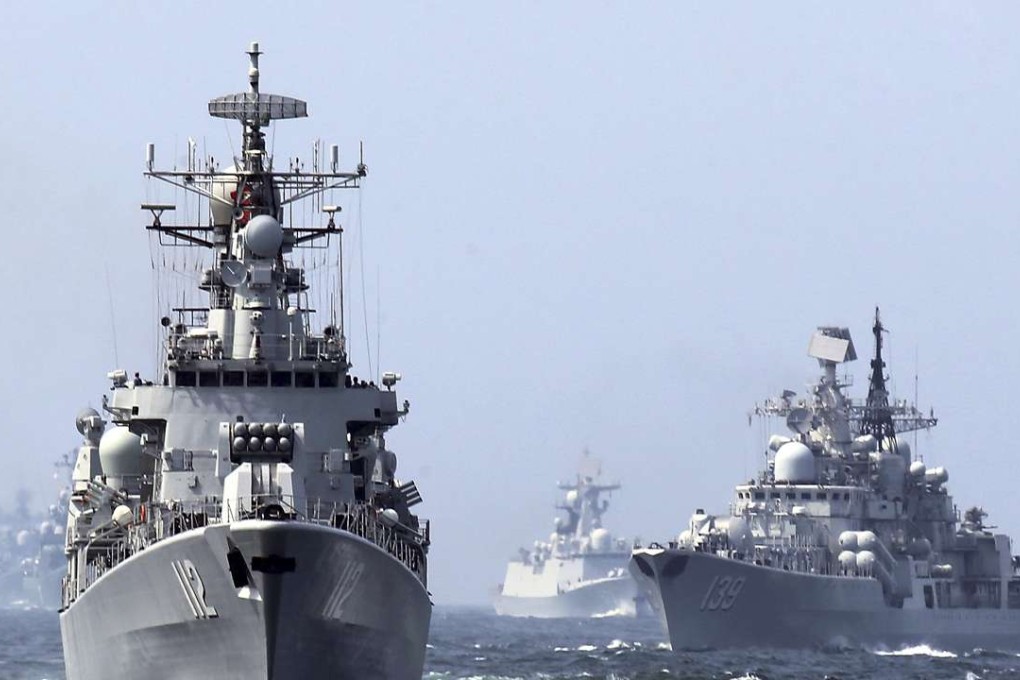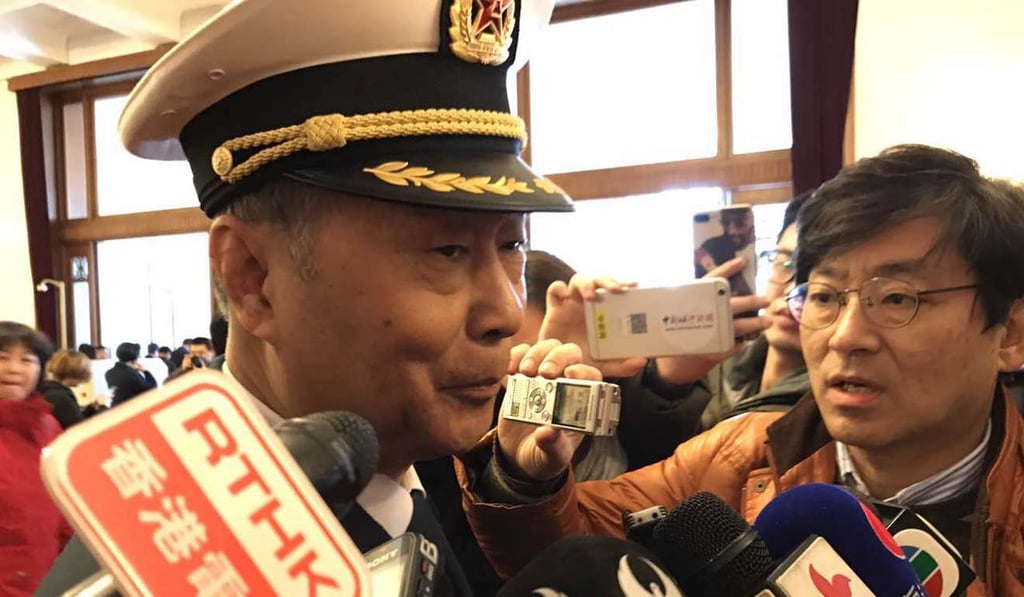Navy must take lead in national defence, retired PLA general says
Traditional view that land force takes priority in the military must change to meet challenges of protecting maritime sovereignty, according to Liu Xiaojiang

The PLA Navy will assume a larger role in national defence to support the country’s growing assertiveness in protecting its maritime claims, including in the disputed South China Sea, a retired senior general said.
Liu Xiaojiang, a former navy political commissar, said the traditional view that land forces were the PLA’s priority must change. “The navy’s role will be more and more important,” Liu said on the sidelines of the National People’s Congress session on Sunday. “China is a maritime country and as we defend our maritime rights and develop our interests, the status of the navy will be more important”.

China lays claim to nearly all of the South China Sea, where it has built runways and fortified structures on several reclaimed islands, and also regularly sends vessels to waters around the Diaoyus in the East China Sea, angering Japan, which administers them as the Senkakus.
The Trump administration has called the island building illegal, but it appears to have backed away from taking a hard line in recent weeks. Earlier this month, US Defence Secretary James Mattis said Washington did not see the need for any major military moves in the South China Sea.
The People’s Liberation Army is increasingly turning its focus to the waters to the south. Last month, it broke with decades of tradition by appointing a naval officer – rather than an army officer – to head its southern command.
Referring to the appointment of Vice Admiral Yuan Yubai, Liu said: “This shows the need of the command’s mission. Protecting our rights in the South China Sea is very important.”
China insists it has historical rights to the waters, an argument that was weighed by a panel of international judges in a case the Philippines filed at an arbitration court in The Hague. They ruled in Manila’s favour but Beijing maintains the court has no jurisdiction over the issue. It insists that any dialogue with other claimants be bilateral. Other claimants in the South China Sea include Vietnam, Malaysia, Brunei and Taiwan.
